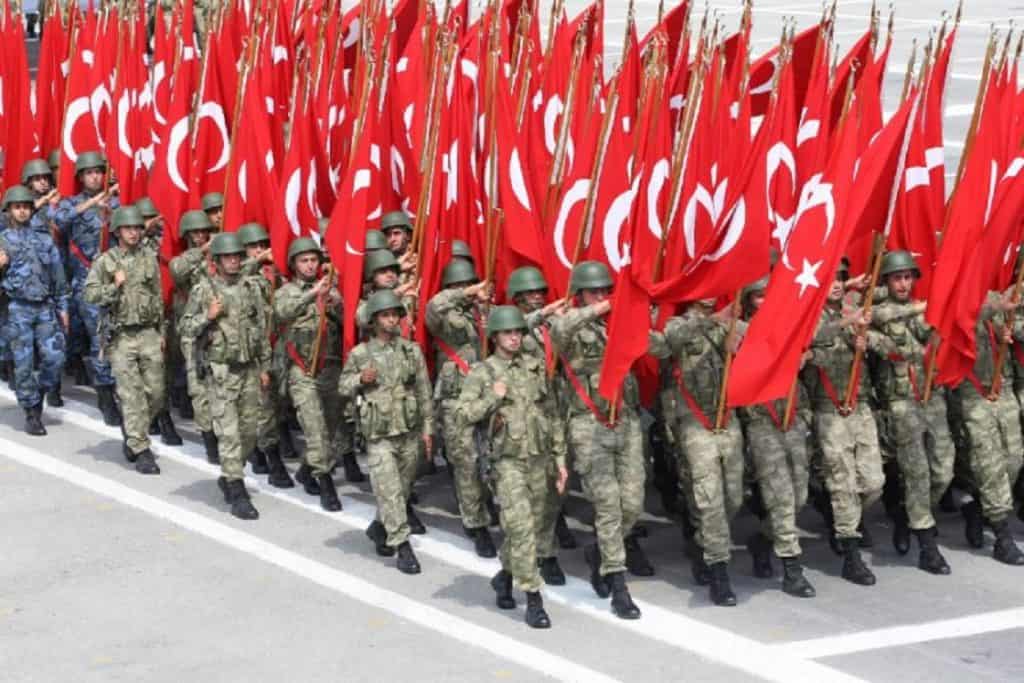By Abdalla Ahmad, Senior Researcher and Advisor in Geopolitical Affairs, Damascus, Syria.
The Turkish expansionist ambitions to regional influence have some traces of the imperialist past. Even if there was an exaggeration in the past, where the Ottoman Empire reached its peak, taking over the Caucasus in 1590, these ambitions are rooted. However, given the limited military and political power, it can simply be said that Turkey’s overall political influence cannot be achieved.
Turkey still sees itself as a potential leader of a fragile Turkish-speaking society, in its Caucasus neighborhood, trying to take advantage of its relatively attractive modernity, its linguistic connection and economy, which at a first sight they seem capable of making it the most powerful force in the nation- building process currently active in the region.
But all of that is linked to its alliance with the United States. In fact, the Turkish economy is fully connected to the Western one, and any real Western pressure on Turkey may lead to a rapid collapse of its economy. Turkey is also militarily linked to the US through the NATO. This allows the United States to intervene even in the Turkish interior affairs.
On the other hand, the regional transformations imposed by the Syrian crisis, as a result of the failure of the project of regime change in Syria, where the Syrian government recovered most of Syrian soil, after the defeat of the rebels supported by the US and Turkey, has led to a decline of the regional Turkish role. Especially with the failure of the Turkish-led Muslim Brotherhood project in the Arab world. However, Turkey remains the main obstacle that prevents the reaching of a settlement to the Syrian crisis.
Despite the media and political statements, that promote a US-Turkish dispute over the Syrian and the Russian-Turkish military cooperation, especially after the S-400 deal, the US-Turkish relationship is still strong. As an extension of its traditional role during the Cold War, the exercise of its influence in Central Asia to prevent the expansion of Russia in that region, Turkey is still the main tool of US in the Middle East as well. Therefore, any talk about a shift in the Turkish position, towards Russia, is just disinformation, because the Russian-Turkish relationship brings temporary benefits, within the limits where each party benefit and each of them is still betting on the time to achieve old ambitions.
The current competition within the Eurasian Balkans also includes three neighboring forces, Turkey, Iran and Russia, where historical roots are also strong. Each was either a politically dominant force or a culturally dominant force in the region. Everyone looks at each other with some doubt, even there is no possibility of a direct war between these parties. But the cumulative effect of their external competition could contribute to creating chaos in the region in the future.
Turkey itself may become a candidate for drowning in chaos. Erdogan’s government has led to a wide spread of religious extremism in Turkey and to a clear division in Turkey over the president’s policies, that explains the recent success of the opposition in winning the municipals elections in Istanbul and Ankara. At the same time we are now witnessing a failure of the Turkish policies in Libya, Tunisia and Sudan with the defeat and decline of the Muslim Brotherhood in those countries.
Beyond Syria, Turkey’s relationships with the other Middle East powers are at a low point, with a little sign of improving only in Qatar, where both countries are counting on the Muslim brotherhood project in the region .
Turkey remains an obstacle to stability in the region, and the recent Turkish-American escalation in northern and eastern Syria could complicate the situation and could lead to the collapse of fragile alliances between Turkey and Russia., where Damascus cannot accept the revival of US-led partition projects in alliance with Turkey in the east and the north of Syria.
Turkish proposals about a buffer zone on the border, and US attempts to impose self-rule on the Kurdish separatist factions in the Syrian east, cannot be understood. Except as an attempt to re-mix the cards in order to prolong the crisis and impose a settlement on Damascus. However, this escalation carries great risks, because that’s may enforce Damascus to use the military force to liberate its territory. Where it is difficult to predict the consequences, and whether it will be possible to control them.
Anyhow, Turkey is unlikely to be able to exert any greater influence over the wider Middle East. Facing security risks related to the Syrian war, diplomatic isolation, and economic decline at home,Turkey will be forced to retreat from many of its policies across the region, including the policy related to the Syrian crises. Otherwise, Ankara ‘s own stability could be called into question.
(The views expressed in this article belong only to the author and do not necessarily reflect the editorial policy and views of World Geostrategic Insights).
Image Credit: AFP Photo/ADEM ALTAN







